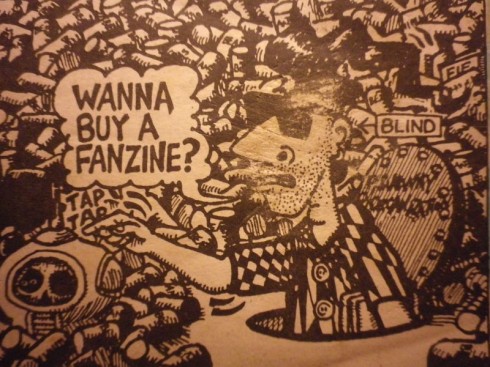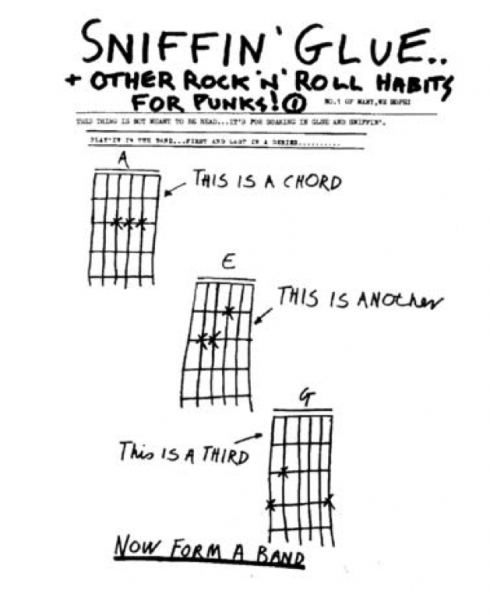13 Mar 2012
Here are three ingredients. Now form an initiative
 I seem to have done rather a lot of talks in schools recently. I did one last week which included showing clips from the film ‘In Transition 2.0’ and talking about all kinds of stories from Transition initiatives around the world. It was also the first one I have done yet where no-one was texting at the back of the room, which was a nice change (might one assured way to raise educational standards in schools be to make sure none of them have a mobile phone signal? Bit radical.) One of the questions I was asked was about how Transition got started, a question I am asked with alarming regularity still). It got me thinking about the whole question of getting things started.
I seem to have done rather a lot of talks in schools recently. I did one last week which included showing clips from the film ‘In Transition 2.0’ and talking about all kinds of stories from Transition initiatives around the world. It was also the first one I have done yet where no-one was texting at the back of the room, which was a nice change (might one assured way to raise educational standards in schools be to make sure none of them have a mobile phone signal? Bit radical.) One of the questions I was asked was about how Transition got started, a question I am asked with alarming regularity still). It got me thinking about the whole question of getting things started.
Speaking to students afterwards, I got the sense that there is a lot of nervousness about just starting things. They might fail, and leave you looking ridiculous. Or rather, that there is a sense that you have to know something will work before you start it. Transition is living evidence that that isn’t the case.
Thinking about it on my way home on a packed train to Reading, I thought that the initiating of Transition, back in 2005/6, required, in hindsight, a particular recipe, of which I, and those others involved at that stage, were largely unconscious at the time:
- Being deeply driven by the scale of the challenge and wanting to do something about it now
- A dash of old punk ‘do it yourself’ spirit (for me, anyway)
- A naive belief that the bits we didn’t know how to do someone else would come along and add into the mix
- A reckless lack of self-consciousness about admitting that there were large parts of this that we hadn’t figured out yet but which we trusted would emerge in time
- Some deeply wonderful and patient co-creators who arrived very early on
- An instinctive sense that it needed to be a response underpinned by compassion rather than survivalism
- A vision underpinned not by abstract ideas but things I had already seen in practice on people’s farms, in their gardens, in their homes
- Being prepared for the possibility that it going completely wrong wouldn’t be the worst thing in the world, combined with
- A passionate belief that this was what we wanted to give our time, creativity and passion to, and that we were prepared to give it large chunks of our lives, our energy, our hearts to it
As I stood there answering the students’ questions, I was reminded of one of the finest examples of all this, especially the punk ‘do it yourself’ bit, which I first saw aged 14 and which partly shaped my attitude to life ever since.
It comes from one of the earliest, and most classic, punk fanzines, called ‘Sniffin’ Glue’. Fanzines, for any of you too young to remember such things, were the blogs of 30 years ago, where boys (mostly) would pour out appallingly self-indulgent stuff about the bands they liked, haircuts, politics, their favourite films and so on, on crap typewriters, cut it up with pictures and stuff, photocopy it, and then sell them out of sweaty hands, largely at gigs. “Wanna buy a fanzine?” became a phrase one would hear many times during an evening at a gig, from a bespectacled youth with a laden satchel over his shoulder.
I loved them. Indeed I still have quite a few of them. Titles such as ‘Vague’, ‘Communication Blur’, ‘Hungry Beat’, ‘Attack on Bzag’, and one of my favourites, “Are you scared to get happy?” They were raw, passionate, and disposable. They also, on occasion, contained some of the best writing I have read, still to this day. Anyway, back to ‘Sniffin’ Glue’. I was a bit young for it really, as I was only 9 when it was published, but this particular page became so celebrated that it was often reprinted in others. Here it is.
What I love about it is that it captures the spirit that for me shone through punk. Whilst many may remember it for silly hair dos, crap records and people spitting at each other, for me it was always about ‘do it yourself’. Don’t like the music press? Start a fanzine. Don’t like the records you’re hearing? Start your own label. Don’t like the clothes on sale? Make your own.
In relation to my checklist above, this page from Sniffin’ Glue captures that. Have a go. Three chords are enough to get you started, you’ll pick up some more once you get underway. Your passion, your love of music, your energy, is far more important than your technical prowess. I saw bands where there were rarely more than 3 chords on show, but somehow it all just held together, there was such a focused determination, such a LOVE for what they were doing. I love all that, me.
For me, Transition at the beginning was 3 chords, a fine tune in our hearts, and a desire to try and see if we could play it. It’s a useful metaphor for the students I was talking to when they asked me how they might start Transition where they live. In terms of Transition, we could say, perhaps, “here are 3 Transition ingredients, now form a group”. Perhaps those 3 ingredients, the key ones to get you started, are Coming together as groups, Forming an initiating group and Running effective meetings (ok yes, well I know that is actually two ingredients and one tool, if you want to be pedantic about it). They’re a pretty potent initial few to get you started.
They are enough to get you moving, laying foundations, up and doing something instead of wishing someone else would do something. They have you starting something, building some solid foundations, and starting to create a sense that something is happening that will bring in others, and that will spur you to start drawing in more ingredients to what you are doing. You will draw in new ingredients when you feel you need them, you will have created something that has the energy of self-organisation about it. This is why the Transition:Launch training focuses on the first few ingredients, rather than the entire journey. Start at the beginning and grow out from there.
Of course in reality it is a bit more complex than that, but for me what matters is a sense of what is possible. The idea that you need to become a virtuoso musician before you can form a band is likely to put 99% of people off the idea that they can create music at all. The idea that you just need to master 3 chords and then you can get started is so much more empowering and enriching. In the same way, the idea that you would need to study facilitation, permaculture, Transition, change management, planning, and so on, to some dazzlingly competent level before you can start a Transition initiative, would mean only about 3 people would get going with it. So, instead, here are three ingredients, now form a Transition initiative. Feels like the best advice I can come up with for a room full of enthused teenagers.
You can find out more about the ingredients of Transition either in ‘The Transition Companion‘ or in the on-line directory of ingredients on the Transition Network website.


Peter of TTL
13 Mar 11:35am
Brilliant!
What a splendid insight; I love it
Kristy
13 Mar 1:15pm
I’ll take this + a couple of other things and I reckon it’s about spot on. 🙂
Erik Buitenhuis
13 Mar 3:30pm
“Begin at the beginning,” the King said gravely, “and go on till you come to the end: then stop.”
Alice’s Adventures in Wonderland, Lewis Carroll
Joanna
13 Mar 7:46pm
Great post, really enjoyed reading that. It is so sad that today everything has to succeed or someone has to pay dearly for it. Experimentation is important if we are to change things, and being allowed to fail is part and parcel of that.
Graham Burnett
13 Mar 10:56pm
Hate to be a pedant Rob, but the old ‘This is a chord’ drawing was originally from ‘Sideburns’ fanzine in Jan 77, from whence Sniffin Glue lifted it shortly afterwards…
Graham Burnett
13 Mar 11:07pm
But then plagiarism (or is that ‘going viral’ in this post-post-post-modern era???) and idea sharing was always an important part of the old ‘DIY Not EMI’ punk sensibility which I personally found much more inspiring and life-defining than the daft haircuts and leather jacket stereotypes…
Another rallying cry of the era was ‘It was easy, it was cheap, go and do it!’ from the self-financed first single by The Desperate Bicycles which laid bare and demystified the process of making your own record, complete with a breakdown of recording, production and distribution costs of the record published as the record sleeve cover art. Indeed a mini ‘ingredients’ manifesto published way back in 1977!!!
Trish Knox
14 Mar 2:10am
My right brain and non-linear orientation is inspired by this post. Thanks Rob for your story…for being genuinely organic!
Go Organic!…especially in our Transition Initiatives. Go Organic! by being who you are and expressing yourself naturally. Go Organic! moment by moment in response to an inner calling. Go Organic! through earthiness of our personal connections nourished by water of words, sun of emotions and air of spirit. Go Organic! in rhythm and harmony with Nature rather than 5-year plans. Go Organic! through living, breathing, thriving projects. Go Organic! through the seeding, weeding and harvesting of Transition Initiatives.
Rob Hopkins
14 Mar 7:52am
Well spotted Graham. A deliberate mistake of course to see if any of the original punks among those reading it would spot it (ahem). ‘Sideburns’ was a crap name for a fanzine anyway.
Amanda
14 Mar 11:26am
How about an ‘initiative classes’ (like a junior version of business school without the corporate overtone)?! In dire economic times kids need hope and empowerment, confidence to try and courage to fail.
The sooner failure is seen as learning and not shameful the sooner more people will dare to dream, as you have done.
andrew ramponi
15 Mar 11:09am
A great analogy, or is it metaphor? Of course blues and rock and roll revolved around 3 chords too, but punk did generally stick more truly to the simple trinity. Looking at the vast spread of creative outcomes we’ve created throughout society from using just binary patterns what might 3 inputs produce!
Another thought: these kids at your talks that seem to be texting, maybe they are tweeting your words as they hear them to the world….?
Just wishin’
Rob Hopkins
15 Mar 11:14am
That’s a beautiful thought Andrew. One I will try to hold in mind at future events with schools. I will try to imagine that they are sending Transition wisdom out excitedly through their huge social networks, inspiring a new generation with exhilarating possibilities. The thought they might be texting “Hvng to listen 2 sum bigeared looser talking bollocks. Lol” won’t enter my mind even once.
Graham Burnett
15 Mar 3:21pm
Always good to think positive Rob, I remember about 12 years ago leaving a bag containing about £100 quids worth of Sale or Return Permaculture books and magazines on an underground train in south London. I’ve always managed to convince myself that they were found by somebody who found them life-changing rather than by a cleaner who chucked them all in the bin…